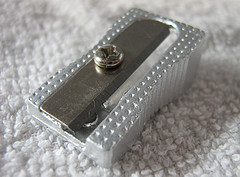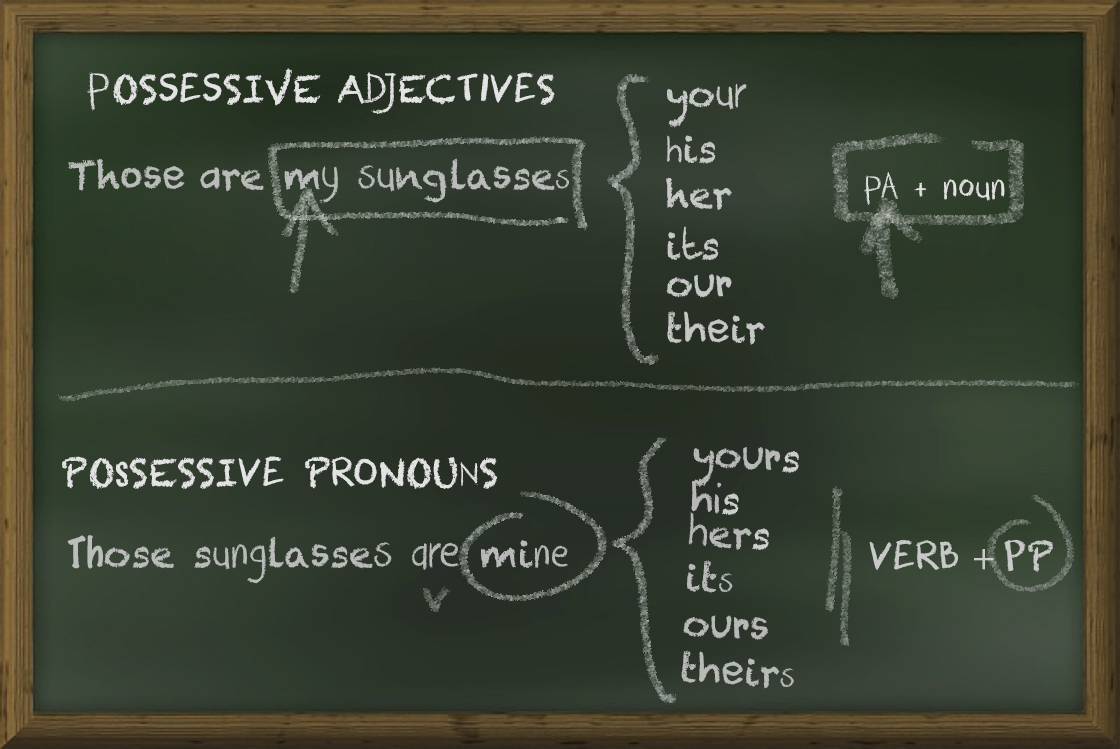2. Mine, mine!

| Another way to express possession is with a pronoun. Remember that a pronoun substitutes a noun. Look at the following sentence: | |
|
Imagen de conskeptical en Flickr bajo licencia CC |
|
|
The pronoun 'it' substitutes 'pencil sharpener'. That is why we call it pronoun, a word instead of the noun. So, a possessive pronoun is a word that denotes possession and is NOT followed by a noun. Check out this chart: |
|

Imagen de creación propia
LISTEN
|
If you remember the previous lesson, when you studied possessive adjectives, you'll see that the form of possessive pronouns is very similar to them. So, during the class, Pablo asks Peter about this and the teacher explains the differences... |
Imagen cortesía de UVIc |
Exercise: LISTEN FOR THE GIST
Listen to Peter explaining the differences between possessive adjectives and possessive pronouns and take the notes you need to follow the class. Look at the blackboard below. You can play the recording twice. For the typescript, click on the button below.
|
Imagen de JeepersMedia en Flickr bajo licencia CC
Imagen de lejaclyn en Flickr bajo licencia CC
|
Imagen de creación propia |
![]()
After class, Beatriz comes back home and turns on her tablet to continue studying. Peter always says that students should practice outside class and she wants to know more about possessive pronouns. So, she looks for the word 'mine'. She types it on Google and this is what she finds:
Video de Malasams en Youtube.
She is confused... Aren't those the seagulls from a Disney film? And aren't they saying 'Mine'? She decides to rent the film to find out...
LEARNING STRATEGY
|
Imagen de JeepersMedia en Flickr bajo licencia CC |
Being proactive when studying English is the key for success. Beatriz does not just go to class, takes notes and that's it. She wants to improve. So, she participates a lot in class and she is very often a volunteer for oral activities. When the class finishes, she continues with her English at home. She's got Emily's help, of course, but she also uses the Internet. Learning to learn and become autonomous and independent should be one of your goals. Of course, you can find a lot of resources on the Internet to learn and to practice English -there are so many!-, but the important thing is to select the ones that help you the most. Remember that you are not alone and your teacher is an essential tool who can guide you to become better at English! |








